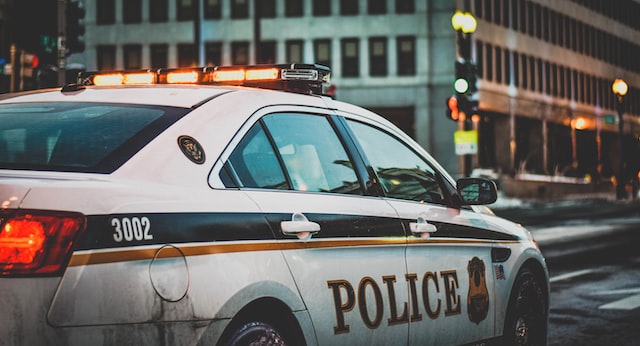When you think about law enforcement, what typically comes to mind? For most people, the image of a police officer on a motorcycle. What about their counterpart in the criminal justice system-the victim’s amazon loss prevention pay? The media portrays them as antagonists. For example, in an iconic 1994 episode from one of America’s favorite TV shows “Law & Order” the victim is brutally attacked by three men wearing ski masks. One of these men was caught immediately after he threw his gun out of a window just before they pulled up to the police station. When they wake him up he says that he was just robbed and has no idea who his attackers were or why they would do this to him.
The Pros of Law enforcement
1. Crime prevention
A. The police can prevent many crimes by their presence alone. Police, or their mere presence in an area has a deterrent effect on crime. Police patrolling in an area, or having a permanent office in that area not only prevents criminal activity at the time it is occurring but also prevents future criminal activity.
2. Protection of the public.
Police officers often act as a buffer between citizens and their technical violation of the law by issuing tickets, warnings, or by simply informing the violator that they are doing something that is against the law.
Police officers are obligated to arrest someone if certain criminal activity is occurring (i.e. murder, rape, shoplifting). If a person attempts self-defense and ends up hurting or killing someone in what appears to be legitimate self-defense, police are obligated to arrest them for murder (until a jury of peers determines otherwise).
3. Public trust
People in communities will trust the police more if they believe them to be honest and fair. Police officers that are perceived as dishonest or corrupt can cost the police department money in lawsuits and loss of public trust. It can also cost lives if the people of a community mistrust the police and are reluctant to call on them when they need help or information.
4. Crime prevention by arrest
Police can prevent many crimes by arresting people who may have committed a crime but don’t realize it (i.e. statute of limitations about to run out) or are intending to do so (i.e., deterring would-be criminals from carrying out their intended criminal activity through fear of arrest).
5. Crime detection
Criminals often make a mistake during the course of their criminal activity that leads police to the perpetrator. This collateral crime gives police a clue as to who their suspect is.
6. Arrest for victimless crimes
Arresting people for victimless crimes (if they are caught) or even for ‘crimes’ that have no victims at all (like trespass or public intoxication) can be used as a tool to prevent future crime in that area.
7. Educating the public and youth about what is acceptable and what isn’t.
Police have been known to offer educational presentations to children and adults in schools, neighborhoods, churches, etc. about what is acceptable and unacceptable behavior and how to avoid conflict, crime, etc.
8. Taking dangerous criminals off the street.
Some people can’t or won’t take responsibility for their actions. They are unwilling or unable to change their ways, abide by the law, or conform their behavior according to society’s standards. These are called career criminals, or sociopaths. These people often have a history of crime and have been in prison before and quickly return after they are released because they see no other way of life during their time in prison. They often resort to violence against others because they have nothing else to lose; so they aren’t afraid of consequences either inside or outside prison walls (like a death sentence).
9. Taking violent criminals off the street.
Violent criminals aren’t afraid of being caught and therefore can commit acts of violence against society with impunity, knowing full well that no one will do much once they have been caught and are returned to prison. This is why police departments have a “no snitch” policy or otherwise see to it that those who cooperate with police on their investigations are ignored or investigated for “suspicious behavior”.
10. Investigating fraud, abuse, and civil rights violations by the police department itself.
Police officers often investigate internal issues in their own departments when citizen complaints about criminal activity by fellow officers arise from time to time (i.e., the Rodney King beating case among others).
11. Taking violent criminals (so-called career criminals) off of the streets.
Crime is often a behavior that only occurs in certain parts of society. People who commit violent crimes are often hard to identify and are considered to be criminal “freaks”. We don’t often think about it, but as a society we can be safer as a whole by taking these people off the streets and protecting the people around them from their behavior.
12. Keeping up with technological advances in law enforcement
We see technology in law enforcement change almost daily: Police cars, new equipment, new guns, high-tech surveillance gear and more. To be a police officer you have to keep up with all the technological change that is going on around you or else you will be out of a job in no time.
13. Holding someone in custody until they can be arraigned
Arraignment is the first court appearance of someone who has been arrested and charged with a crime. They are presented with their charges and bail, if any, is set by the judge in the case.









